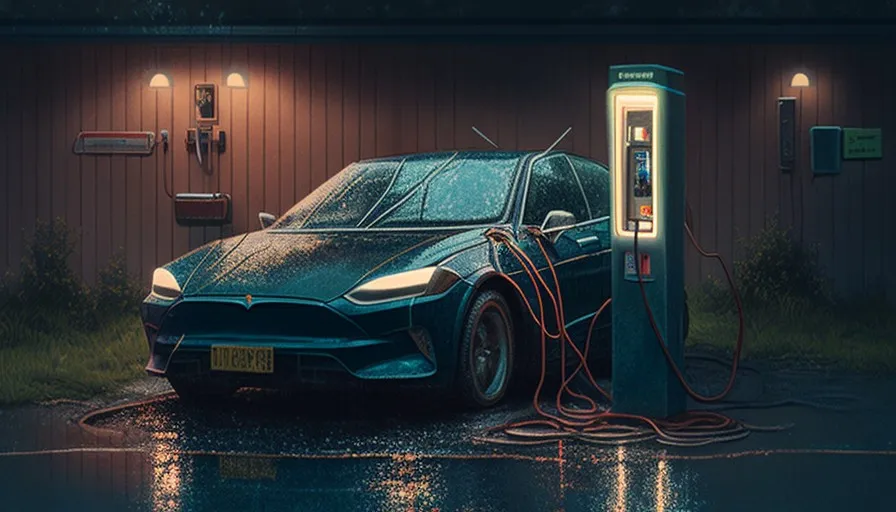The automotive industry has been undergoing a significant transformation in recent years, with a growing emphasis on sustainability and reducing carbon emissions. One of the most prominent symbols of this change is the rapid rise of electric cars. As the world shifts towards more environmentally friendly transportation options, the question that looms large is, “Will electric cars kill the oil industry?” In this article, we will delve into the electric revolution and its potential impact on the oil industry.
The Rise of Electric Cars
Electric cars have become a mainstream choice for consumers worldwide. This shift is fueled by several factors, including environmental awareness, government incentives, and advancements in battery technology. Electric vehicles (EVs) have made tremendous strides in terms of range, affordability, and charging infrastructure. This transformation is not merely a trend; it’s a fundamental shift in the automotive landscape.
The electric car market is booming, with major automakers investing heavily in electric vehicle production. Companies like Tesla, Nissan, and Ford have made substantial commitments to electrify their fleets. In addition, startups like Rivian and Lucid Motors are gaining traction, providing consumers with more electric vehicle options.
The Environmental Imperative
The push for electric cars is closely tied to environmental concerns. Traditional gasoline and diesel-powered vehicles are significant contributors to greenhouse gas emissions, air pollution, and climate change. Electric cars, on the other hand, produce zero tailpipe emissions and are more energy-efficient. This shift towards sustainable transportation aligns with global efforts to combat climate change and reduce dependence on fossil fuels.
Will Electric Cars Kill The Oil Industry?
The question on everyone’s mind is whether electric cars will ultimately lead to the demise of the oil industry. While it’s too early to predict the industry’s complete collapse, there are several factors that suggest a substantial impact:
1. Reduced Oil Demand
As electric cars become more mainstream, the demand for gasoline and diesel is expected to decline. The growing EV market will likely eat into the oil industry’s traditional customer base, which could result in decreased demand for crude oil. This reduced demand may force oil producers to reevaluate their operations and pricing strategies.
2. Shifting Market Dynamics
The automotive industry’s shift towards electric cars is causing oil companies to reevaluate their long-term strategies. Some are investing in renewable energy sources, such as wind and solar, to diversify their business portfolios. Others are focusing on producing cleaner fuels or developing technologies for carbon capture and storage. The shift towards electric cars is prompting a fundamental transformation in the oil industry’s structure.
3. Government Regulations
Many governments worldwide are implementing stricter emissions regulations and incentives for electric vehicle adoption. These regulations often require automakers to meet stringent fuel efficiency standards, which push them towards electric and hybrid vehicle development. These policies can significantly impact the oil industry’s future as they promote cleaner and more sustainable transportation options.
4. Technological Advancements
Advancements in battery technology and energy storage are reducing the cost of electric vehicles and improving their performance. This makes electric cars more attractive to consumers and further accelerates their adoption. As electric cars become more affordable and practical, it becomes increasingly likely that they will challenge the dominance of traditional gasoline and diesel vehicles.
The Road Ahead
While the future of the oil industry is uncertain, the rise of electric cars presents both challenges and opportunities. As the world transitions to a more sustainable and environmentally friendly mode of transportation, the oil industry will need to adapt. This adaptation may involve diversifying their business models, investing in cleaner technologies, and finding ways to reduce their environmental footprint.
At the same time, electric cars offer an exciting opportunity to reduce our reliance on fossil fuels, combat climate change, and create a more sustainable future. The electric vehicle revolution is not just about transportation; it’s about reimagining how we power our world.
In conclusion, the question of whether electric cars will kill the oil industry is complex and multifaceted. While the electric revolution is poised to transform the fuel landscape, the complete demise of the oil industry may be a long-term process. What is certain, however, is that the shift towards electric cars is reshaping the automotive industry and encouraging a more sustainable approach to transportation.
